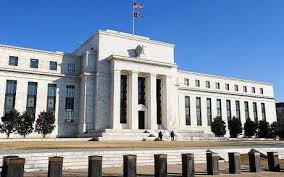Not many people would have blamed you had you thought that the Enron debacle would be the last major business scandal around the world. Enron, in 2000, was the sixth-largest energy company in the world and a leading provider of financial and risk management services. In the fall of 2001, reports emerged that the firm had cooked its balance sheet; it had overstated its profits for the five years leading up to 2000 by over half a billion dollars. Soon after, Enron filed for bankruptcy, leading to the collapse of the firm and over 4,000 employees losing their jobs. An accounting scam of this magnitude should have taught businesses and the wider industry a few lessons, including methods to avoid such scenarios in the future. As it turns out, close to two decades later, such issues are still prevalent, and there is significant room for improvement. Positive goals set by the leadership team, a culture focused on open communication and collaboration, and a strong Internal Audit function are all imperative in preventing such disasters in the future.
The leadership team, amongst other responsibilities, sets the foundation for the firm’s strategic vision and financial goals. Typically, the ability to meet these financial goals directly impacts employees’ compensation and how quickly they climb the corporate ladder. In the worst scenario, falling short of targets can lead to employees being fired and can quickly evolve into a scandal. In 2016, Wells Fargo admitted to opening more than 2 million unauthorized client accounts, and a slightly closer look at the firm showed that it was the unrealistic sales goals that the leadership team set for its retail banking division that led to this scandal. Wells Fargo advisors had to sell at least 8 financial products per customer, and as such being forced to impersonate their customers to meet their objectives. Wells Fargo, to make up for lost ground, has now revised the focus from sales goals to customer service. This needs to be adopted by the other retail banks as well. Creating goals focused on customer service means that banks would still likely gain customers without encouraging unethical actions, and thus reduce the likelihood of widespread misconduct. Leadership teams across the industry should look at the Wells Fargo incident to evaluate the goals that they are setting for their own firms.
Furthermore, encouraging open communication and collaboration is crucial in reducing the possibility of corporate scandals. A culture in which employees feel safe whistleblowing, and questioning the actions of their superiors, can go a long way in ensuring that fraudulent activity gets detected and resolved quickly. Had such a work environment been developed in Japanese companies, it is likely that the multiple corporate scandals over the past decade in the country could have been avoided. Less than a month back, Kobe Steel admitted to falsifying data on products sold to over 500 companies, including giants such as Boeing and Toyota. This scandal emerged soon after Nissan recalled over 1.2 million cars for failing to meet safety requirements. An open culture would have likely led to teamwork being used to catch wrongdoing by other employees, and as such might have prevented the scandals.
Lastly, building strong internal lines of defence can reduce the probability of corporate scandals. Internal Audit helps assess the effectiveness of a firms’ controls related to its business operations, business structure, and employee behaviour. Investing heavily in the Internal Audit department would ensure that there are sufficient resources to conduct thorough audits, and reduce the pressure the auditors face to complete audits quickly. We do not need to look far to find how the absence of a solid Internal Audit unit can impact a company. In 2015, it was revealed that over 400,000 Volkwagen cars in the US were fitted with devices that allowed them to pass Carbon Dioxide Emissions tests, when in fact they were sub-standard. An efficient and unbiased Internal Audit department with ample resources would have likely found these faulty devices a lot earlier.
The primary aim of any for-profit organization is to maximize their returns. However, it is crucial that they regain the trust of their customers to build more meaningful and long-lasting relationships. Firms should strive to create positive goals for their employees, champion a culture emphasizing openness and maintain strict internal controls to prevent scandals from engulfing their operations.
Photo: Panama, Papers, Scandal, and Dollar, by geralt. Public Domain.
Disclaimer: Any views or opinions expressed in articles are solely those of the authors and do not necessarily represent the views of the NATO Association of Canada.




